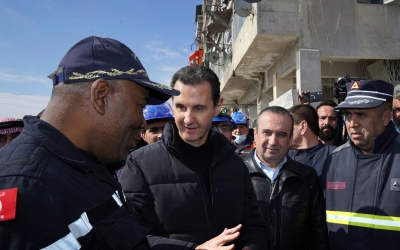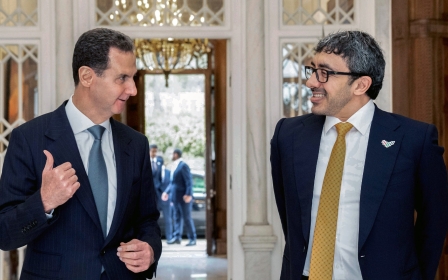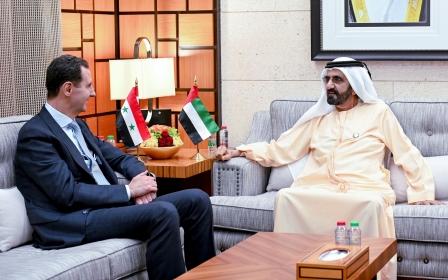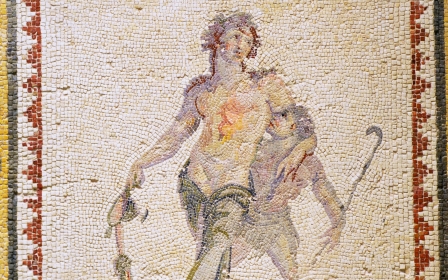Egypt's foreign minister meets Assad in first Syria visit since war
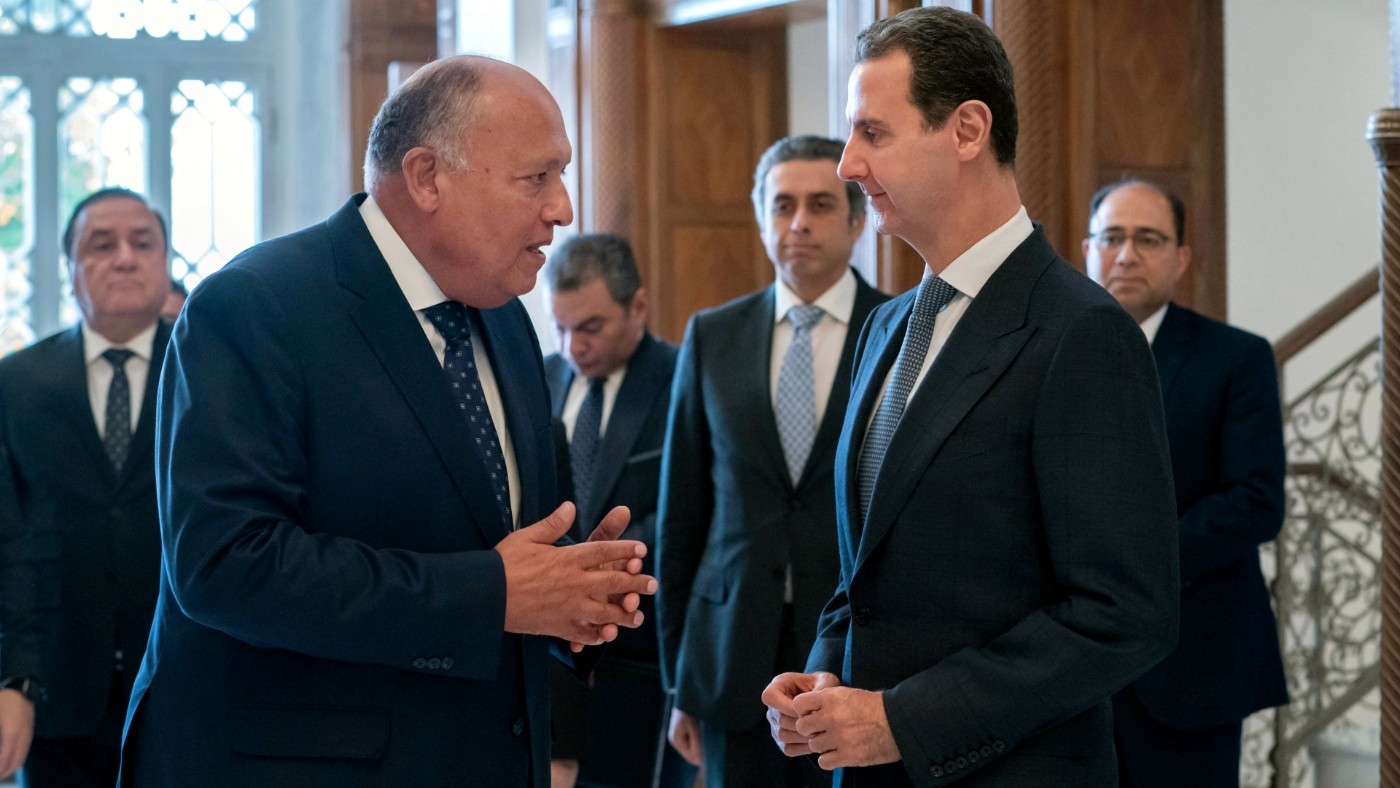
Egypt’s foreign minister, Sameh Shoukry, met Syrian President Bashar al-Assad in Syria on Monday, in the latest sign of warming relations between Damascus and Arab states following years of isolation.
The visit comes after a senior Arab delegation convened in Syria on Sunday for talks with Assad on bringing the country back into the regional fold.
Diplomatic overtures have been forthcoming in the aftermath of two devastating earthquakes that hit Syria and neighbouring Turkey earlier this month, with Assad benefitting from an outpouring of Arab support.
'The goal of the visit is primarily humanitarian, and to pass on our solidarity - from the leadership, the government and the people of Egypt to the people of Syria'
- Sameh Shoukry, Egypt foreign minister
"The goal of the visit is primarily humanitarian, and to pass on our solidarity - from the leadership, the government and the people of Egypt to the people of Syria," Shoukry told reporters in Damascus.
The 6 February earthquakes have killed more than 5,900 people in Syria, the majority of them in the rebel-held northwest. In Turkey, the death toll stands at more than 44,000. Both figures are expected to rise.
Egypt was looking forward to providing more quake assistance "in full coordination with the Syrian government," after already having donated some 1,500 tonnes of aid so far, Shoukry said, standing alongside Syrian Foreign Minister Faisal Mekdad.
"When the foreign minister of Egypt comes to Damascus, he comes to his home, his people, and his country," Mekdad said.
Egypt's President Abdel Fattah el-Sisi called his Syrian counterpart following the quakes, in the first official exchange between the two leaders.
After Damascus, Shoukry travelled to Turkey and met his Turkish counterpart Mevlut Cavusoglu, marking another significant regional trip following a decade of strained ties between Ankara and Cairo.
Shoukry did not respond to reporters' questions on whether Egypt would support lifting the Arab League's suspension of Syria.
Ending isolation
Syria was suspended from the Arab League in 2011 following the government’s violent crackdown on mass protests against Assad's rule, with many Arab states demanding the president's removal.
But as Assad - with significant Russian assistance - has defeated his enemies across much of Syria in recent years, so regional states have taken steps to end the isolation of Damascus, with the United Arab Emirates at the forefront of Arab rapprochement.
The UAE reopened its Syrian embassy in 2018 and welcomed Assad to Abu Dhabi and Dubai last year during his first trip to an Arab state since the start of the war.
"This is an inflection point in a four-year trend for actors who want to move forward with normalisation," Natasha Hall, a senior fellow at the US-based Center for Strategic and International Studies, told Middle East Eye.
"We are seeing high-level diplomats meeting Assad and also real material support going to the regime," she added.
Soon after the earthquakes, Jordan's foreign minister, Ayman Safadi, met Assad in Damascus, in the first such visit since the Syrian civil war started.
Meanwhile, the Syrian president travelled to Oman last Wednesday and met Sultan Haitham bin Tariq.
Saudi Arabia last week said consensus was building in the Arab world that isolating Syria was not working and that dialogue with Damascus was needed at some point.
Arab delegation
On Sunday, a delegation from the Arab Inter-Parliamentary Union, headed by Iraqi Parliament Speaker Mohammed Halbousi, travelled to Damascus to meet Assad.
The delegation consisted of the heads of the Jordanian, Palestinian, Libyan, Egyptian and Emirati houses of representatives, as well as representatives from Oman and Lebanon that met Assad in Damascus.
Egypt’s Parliament Speaker Hanafy El-Gebali, the most senior Egyptian official to visit Syria in over a decade, told reporters that the visit "to brotherly Syria" was in support of its people after the earthquakes.
Gebali cited the joint statement from the Arab Inter-Parliamentary Union meeting in Baghdad on Saturday about the need to start the process of "bringing Syria back to the Arab fold".
"It’s natural that Syria will return some day, God willing, and matters will return to what they once were," he said.
Middle East Eye propose une couverture et une analyse indépendantes et incomparables du Moyen-Orient, de l’Afrique du Nord et d’autres régions du monde. Pour en savoir plus sur la reprise de ce contenu et les frais qui s’appliquent, veuillez remplir ce formulaire [en anglais]. Pour en savoir plus sur MEE, cliquez ici [en anglais].


